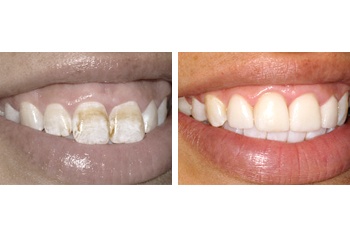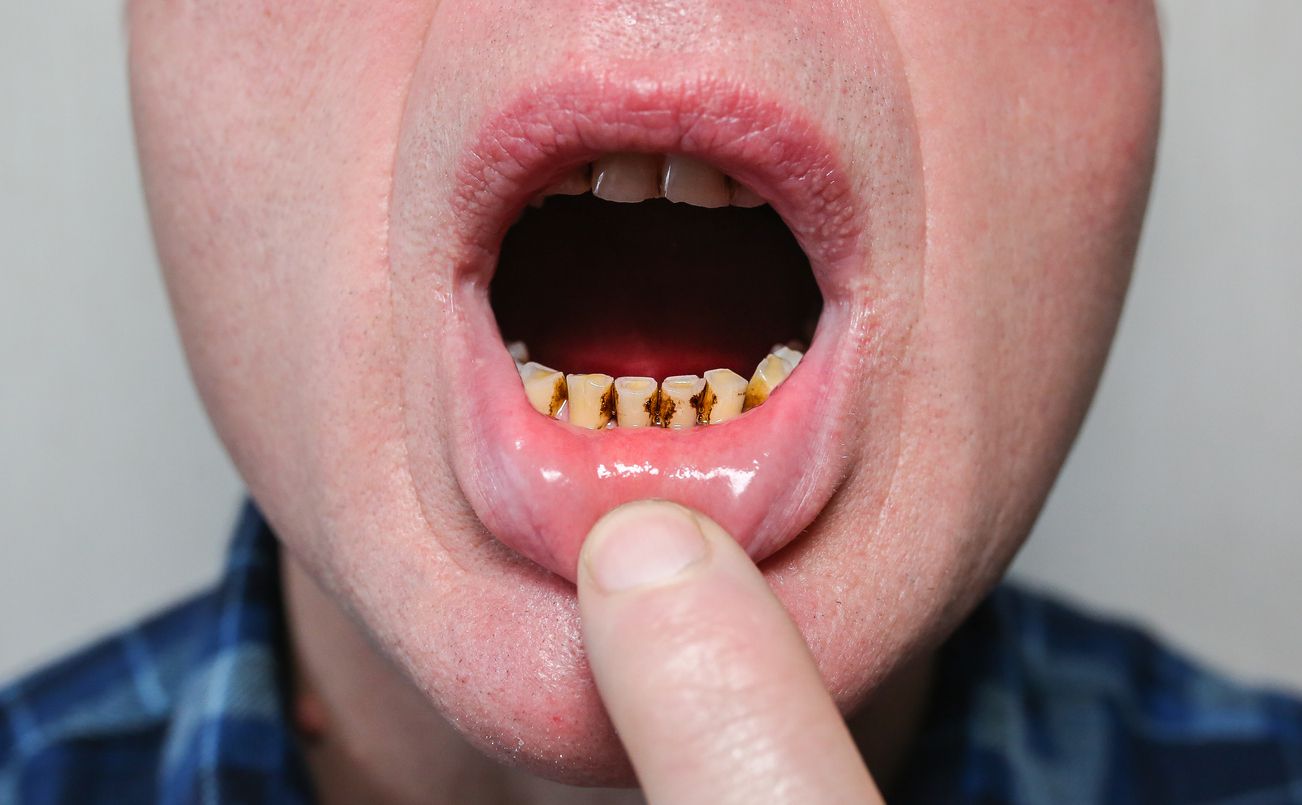The Tooth Decay Process: How to Reverse It
If you already have cavities (holes in the teeth) or advanced tooth decay, you cannot reverse it. There is no natural way to remove cavities or cure them at home.
While you can purchase tooth filling kits, they’re not often recommended, and cavities should not be taken lightly. Instead, visit the dentist to ensure your teeth and oral health are properly protected.
Every time you eat, bacteria in the mouth produce acids that lead to cavities. You’ll notice bacteria build-up as it forms a sticky film on teeth and along the gum line.
Even with a great oral hygiene routine at home, plaque and tartar can still accumulate in stubborn, hard-to-reach areas. If this is not correctly removed, tooth decay and gum infections will form, destroying the supporting bone and teeth.

Keeping teeth healthy at home
The best and simplest way to ensure your teeth and oral health stay healthy and free from decay is by brushing your teeth (more often than you think).
In an ideal world, you would clean your teeth after every meal to remove the sugars and residue contributing to tooth decay.
However, as most people don’t like carrying a toothbrush around all day, they can do the bare minimum by brushing their teeth twice daily, following up with mouthwash.
Explore even more helpful tips…
DIY methods to prevent and get rid of decay
Checklist to follow:
- Remove the sugar from your teeth: The best prevention is to watch out for sugar in all its forms. Consuming sugar interacts with the bacteria in your plaque, which produces acid and slowly dissolves the enamel in your teeth, creating holes/cavities.
- Oil pulling: Oil pulling is an alternative to using mouthwash. In oil pulling, you swish around an edible oil briefly in the mouth before spitting it out. Studies in 2022 and 2017 found that coconut oil was effective at reducing plaque or helping reduce inflammation of gums infected with gingivitis.
- Sugar-free gum: Chewing sugar-free gum reduces the impact of acid by increasing saliva production in the mouth. With studies confirming that sugar-free gum prevents tooth decay, the Oral Health Foundation even claims that the NHS could save up to £8.2 million a year on dental treatments if all 12-year-olds chewed sugar-free gum after eating or drinking.
- Clove oil: Before modern advancements, clove oil has long been used to treat cavity tooth pain and restore tooth enamel. This study in 2012 found that the molecules in clove oil effectively prevented dental erosion, meaning it can work similarly to fluoride in preventing cavities.
Alternatively, you can consider diet changes and natural remedies to reduce bacteria, which can help slow the advance of tooth decay. For example, reducing starchy foods rich in carbohydrates can remineralise your teeth and help prevent exposure.
Probiotics can also help with remineralisation. However, be careful to choose strains naturally produced in the mouth.
Eating liquorice root also has antibacterial properties that target S.mutans, the bacteria that causes cavities.


